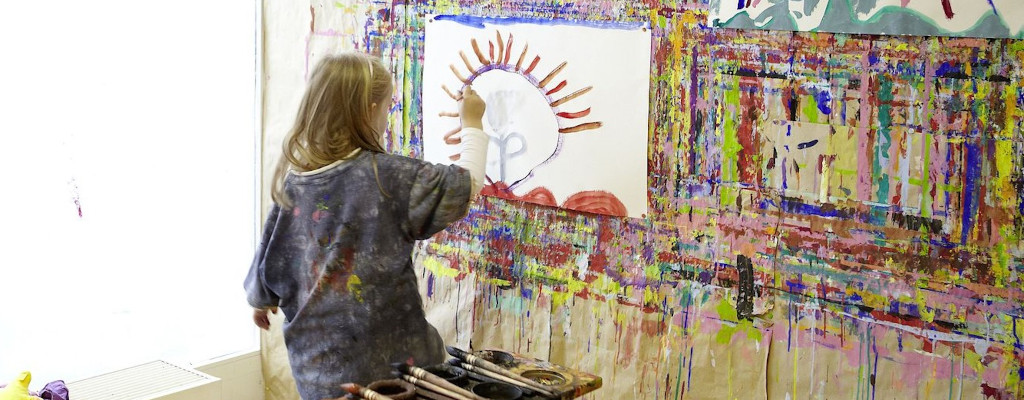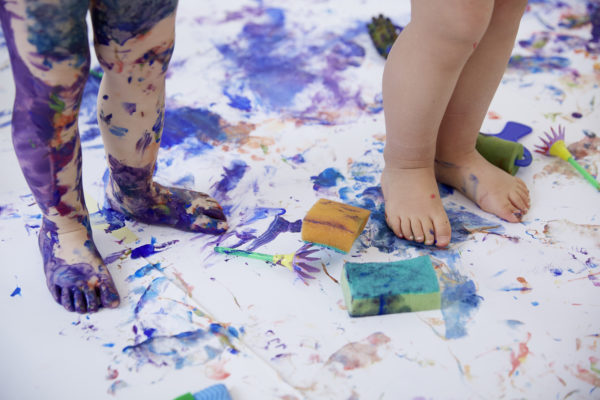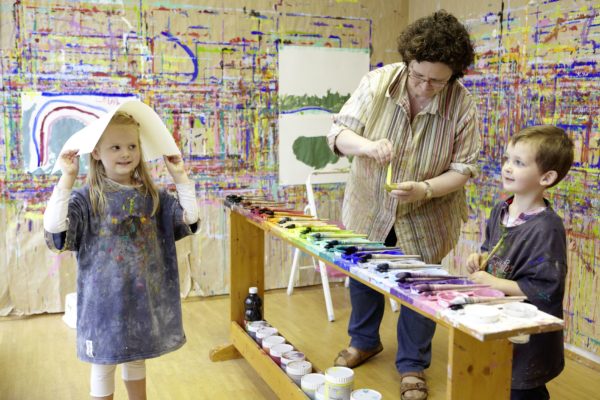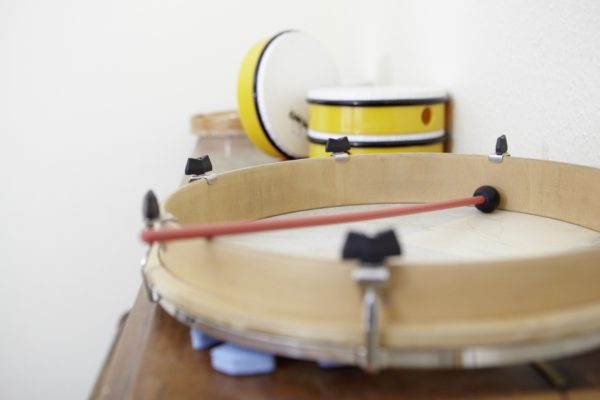
Discovering creativity
When we paint in the studio, the goal is not to “produce works of art.” Rather, each child should have the opportunity to find his or her own expression, which is very important for strengthening a balanced personality.
In Free Painting, the child has a play space (the sheet of paper) at his or her disposal on which
it is free to do as it pleases, taking into account some rules that facilitate the cooperation in the painting group.
Each one uses the colors that are important to him/her; each one has the possibility to repeat something as many times as he/she wants; each one decides himself/herself what he/she will put on paper.
This kind of free expression can only happen if the child can be sure that what he/she paints will not be judged, commented on, interpreted or compared. Such a protected space is what the children experience in our painting sessions.
If a child is given the opportunity to develop certain signs for himself, to formulate them himself (without developmental steps being taken in advance through pretending, pretending, pre-painting), all these signs will remain with him, none of them will ever be unlearned.
Quote by Christiane Augustin-Malysz (Dipl. Sozialpädagogin, trained in expression semiology and painting supervision according to Arno Stern)
Music
All children enjoy music and dance. They play with their voices, love how their bodies move and enjoy getting their hands on anything that makes a noise. They learn rhymes and songs, rhythms and melodies. They make them theirs and sometimes change them on their own. Early contact to music develop and systematically encourage the innate talents of every child. Starting with music at a young age can make a positive contribution to a child’s overall development.
In our kindergarten, we present music to children in a playful fashion, letting them experience it with their senses and realise it as an important part of life. For children, a holistic experience of music means:
- Singing
- Dancing
- Speaking
- Movement
- Dramatic play
- Playing instruments (Orff Schulwerk instruments)
- Listening to music
- Becoming familiar with traditional instruments
- Learning musical basics





